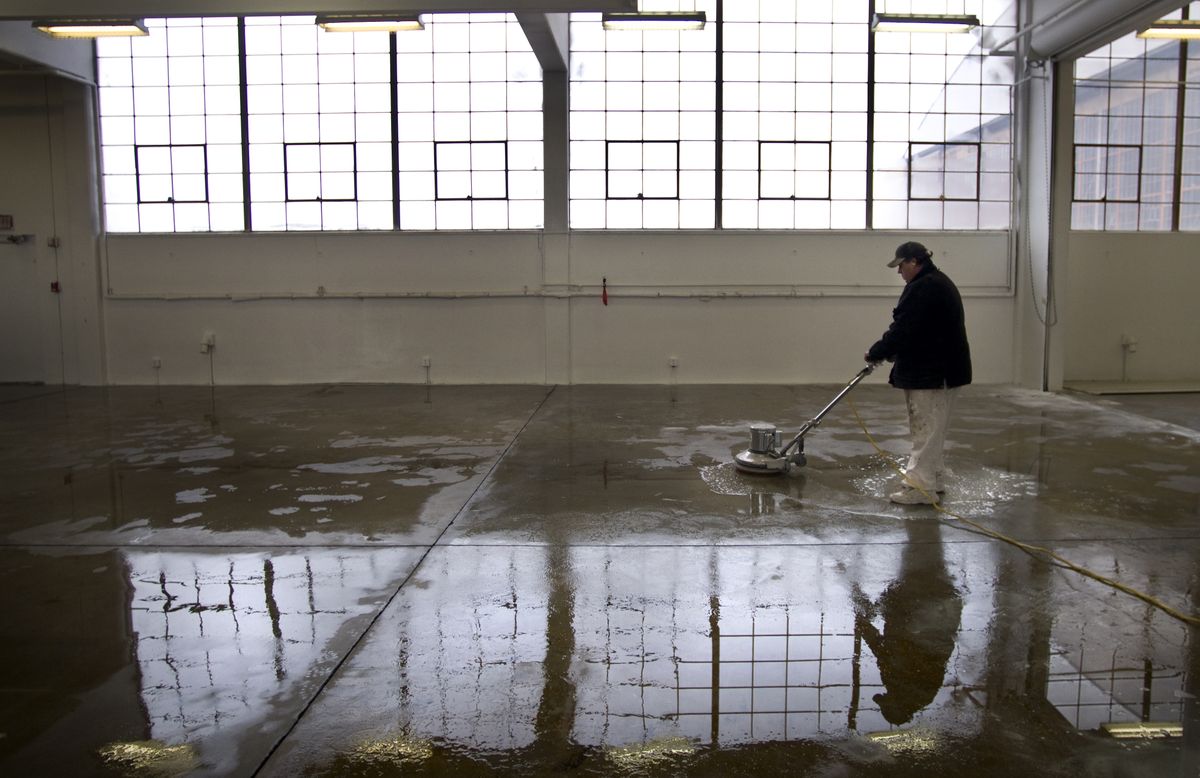Aerospace company will bring jobs to airport

In the gloom of a mounting national recession, the Inland Northwest has one bright spot.
A Canadian aerospace company will bring at least 30 new jobs to Spokane starting in February, and plans to expand its work force to between 300 and 500 workers earning middle-class wages over the next five years.
Spokane International Airport is undertaking a $1 million contract to upgrade a World War II-era hangar to accommodate the first phase of development for Cascade Aerospace USA, an offshoot of a successful British Columbia firm.
Bret Burnside, senior vice president for operations, said Cascade initially is working through another company to modify a new Boeing 737-700 jetliner into an ultra-luxury plane for a foreign customer. He declined to identify the customer, but said the job “is a very high upscale project” that will take seven months or more to complete.
He described the customers as “guys who have enough money to pay $50 million for an aircraft and $18 million customizing it,” and the work is so exacting that mechanics will be trained not to leave any scratches because the customers will notice.
But that is just the start. The company is pursuing a range of aircraft maintenance and modification contracts, and is in discussions with three airlines now, Burnside said.
The business model is built on a concept that’s been successful for the parent Cascade Aerospace, which built a reputation on reliable and affordable outsourced maintenance. Workers in Spokane would earn about $43,000 a year, airport officials have said.
Cascade Aerospace is based at Abbotsford International Airport just outside of Vancouver, B.C., and is one of the top 10 aircraft maintenance companies in North America. It specializes in work on 737 and 757 Boeing planes, according to its Web site.
The company started in 1969 offering aerial firefighting aircraft.
Discussions about opening an aircraft maintenance business in Spokane date to 1997 but really took off in 2005 when Burnside brought Cascade to the table. Spokane had to compete with other locations, including Billings and communities in Utah and Idaho.
Burnside said Spokane won out because it offers workers an affordable place to live. The region also has two airframe and power plant mechanical programs at Spokane Community College and Big Bend Community College in Moses Lake, which can provide a steady supply of entry-level mechanics, he said.
Also, the region has a large number of experienced and licensed aircraft mechanics, and it is a short flight from Abbotsford, Burnside noted.
“The (Spokane) airport has been instrumental in working with us,” he said. “The local business community has been very supportive. … Overall, it’s a very hardworking, blue collar-type community that still has a great work ethic and friendly people.”
Cascade Aerospace would lease the hangar and adjacent structures being updated by Lydig Construction of Spokane under a $959,000 contract approved by the Airport Board last month.
The work involves building tail enclosures so two Boeing jets can be parked inside the hangar with their tails extending outside while the inside of the hangar is kept free from the elements. Upgrading of offices, new security, electrical supply, heating and air conditioning and other work are part of the job.
A smaller concrete block building connected to the hangar is believed to be the earliest structure at the original Geiger Field, now known as Spokane International.
The 32,000-square-foot hangar with wooden bowstring trusses was built about 1943 when steel was being diverted to the war. It has a look characteristic of hangars of the period.
The airport acquired the facilities in 1957 when the military relinquished them as surplus properties.
They were leased back for use by the Air National Guard for 50 years and became available to the airport again in 2007. Horizon Airlines has been using the hangar for the past year and is leaving in January.
Cascade Aerospace plans to build a larger hangar of up to 250,000 square feet as its business here grows. To accommodate that, the airport has traded land owned by the military on the south side of the airport adjacent to the hangar.
Cascade Aerospace’s arrival is part of a broader effort to develop an aviation industry in Spokane.
Todd Woodard, spokesman for the airport, said the economic downturn might work to the advantage of Cascade.
“The economy actually helps,” he said.
“The airlines are looking at ways to cut costs so they are outsourcing their maintenance.”